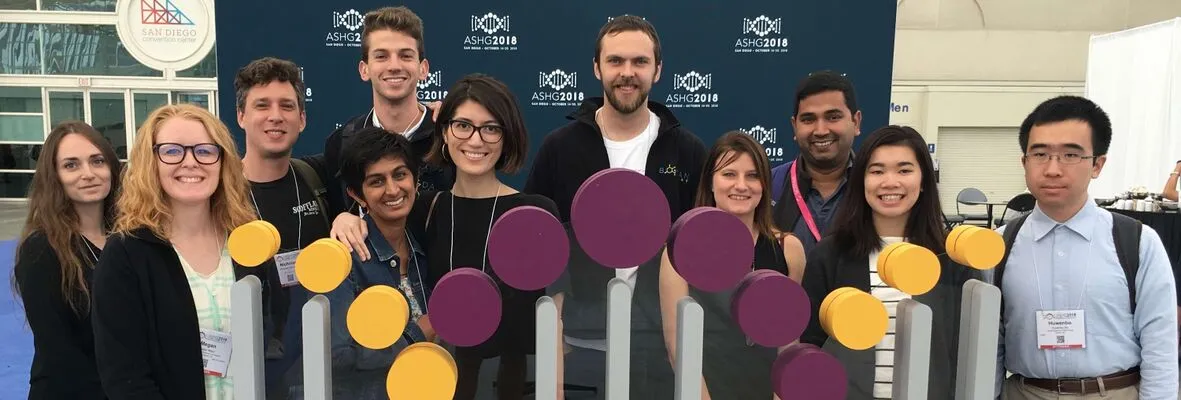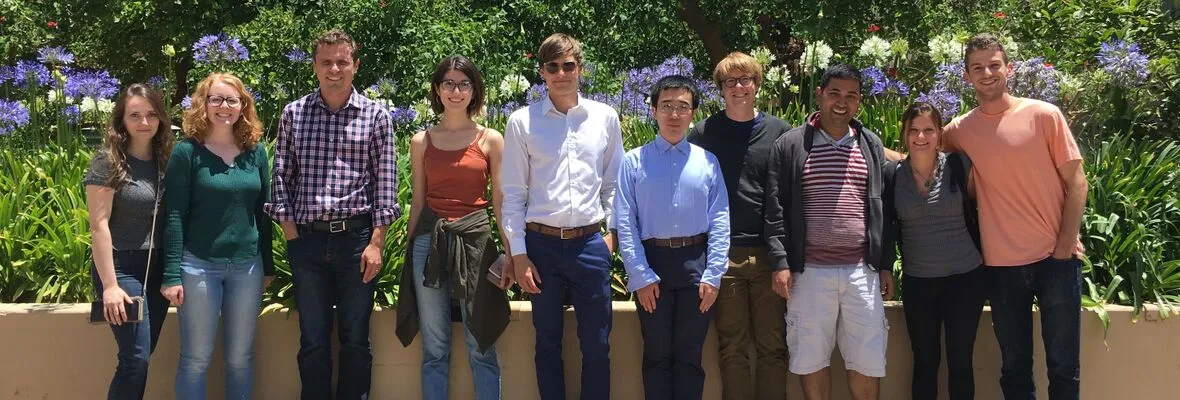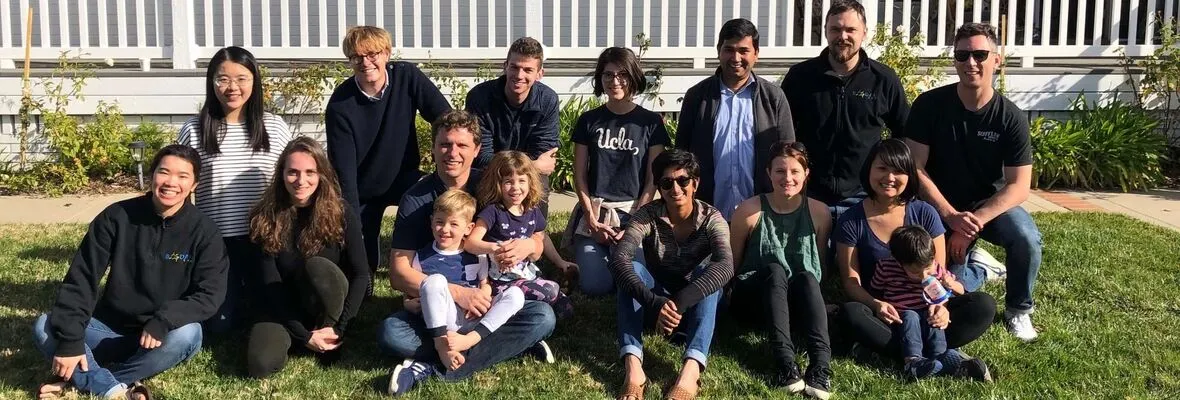Bogdan Research Group - at University of Pennsylvania
We are a research group in the Department of Genetics and Institute of Biomedical Informatics at UPenn. After 12 amazing years at UCLA (2012-2024), our research group moved back to the east coast at Penn to establish a research programme focused on computational genomics for precision health. We develop computational and statistical methods to understand the genetic basis of disease and to translate such findings into the clinical domain. We focus on methods for integrative genomics, biobank and electronic health record studies. We have a strong emphasis on translational genomic studies leveraging novel computational and statistical methods for EHR-linked biobank studies.
Some of our representative works include:
- Calibrated prediction intervals for polygenic scores across diverse contexts. Hou et al. Nat Genet. 2024.
- Polygenic scoring accuracy varies across the genetic ancestry continuum. Ding et al. Nature. 2023.
- Causal effects on complex traits are similar for common variants across segments of different continental ancestries within admixed individuals. Hou et al. Nat Genet. 2023.
- Probabilistic fine-mapping of transcriptome-wide association studies. Mancuso et al Nat Genet 2019
- Accurate estimation of SNP-heritability from biobank-scale data irrespective of genetic architecture. Hou*, Burch*, et al. Nat Genet. 2019.
- Integrative approaches for large-scale transcriptome-wide association studies. Gusev et al. Nat Genet. 2016.
We are recruiting kind and motivated quantitatively oriented trainees at all levels (undergraduate, graduate and postdoctoral); contact Bogdan for details.
Bogdan's recently updated resume and short bio.
Latest News
-
New paper in Nature!
Monday, May 1, 2023
New paper! Our latest study reveals the individual-to-individual variation of PGS accuracy across the genetic-ancestry continuum, even in traditionally defined "homogenous" populations! (Ding et al Nature 2023). Read the Research Briefing, UCLA Health News and twitter thread for more details.
-
New paper at Nature Genetics
Monday, May 1, 2023
New paper! Our recent analysis of individuals of admixed genetic ancestries suggests that complex trait causal variant effect sizes are largely similar across ancestries, and discusses the implication for the study of these and other diverse populations. (Hou et al Nature Genetics 2023). Read the Research Briefing by Elizabeth G. Atkinson and twitter thread for more details.
-
New paper
Monday, July 1, 2024
Polygenic scores (PGS) have emerged as the tool of choice for genomic prediction in a wide range of fields. We show that PGS performance varies broadly across contexts and biobanks. Contexts such as age, sex and income can impact PGS accuracy with similar magnitudes as genetic ancestry. Here we introduce an approach (CalPred) that models all contexts jointly to produce prediction intervals that vary across contexts to achieve calibration (include the trait with 90% probability), whereas existing methods are miscalibrated. Read more in Hou et al Nature Genetics 2024
Announcements
-
Bogdan is giving the Nathan Kaufman timely topic at United States and Canadian Academy of Pathology Annual Meeting
The Academy established established the Timely Topics Lecture in 1982 at the suggestion of Dr. Nathan Kaufman. It was initially conceived as a lecture by a prominent individual in the field of pathology to address a “timely topic” but has evolved into a sophisticated presentation, generally by a clinician or researcher, whose integrated relationship with pathology moves the discipline forward with contemporary ideas, innovative methods, and futuristic technology.
Bogdan will talk on Polygenic Risk Scores for Genomic Medicine: Promises and Challenges
-
Bogdan teaches at the 2025 Leena Peltonen School Of Human Genomics
Wellcome Genome Campus (Hinxton, UK) July 27-31, 2025 Leena Peltonen School Of Human Genomics
Founded in 2011 to honor the pioneering Finnish geneticist Leena Peltonen (1952–2010), this summer school offers an unparalleled opportunity to learn and be inspired from the leading voices in human genomics. Students will gain insights and inspiration from top scientists across academia and industry who are actively advancing the field. Many past attendees have since become leaders at the forefront of this research.
The Leena Peltonen School is designed for scientists and clinican-scientists nearing the completion of or have just completed their PhD. To foster meaningful discussions and connections, enrollment is capped at 20 students.





